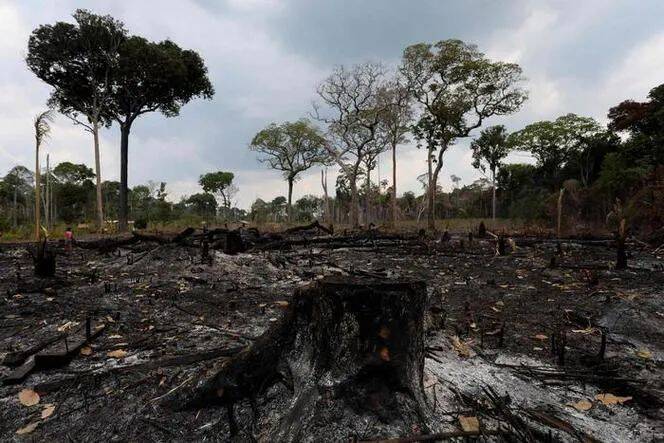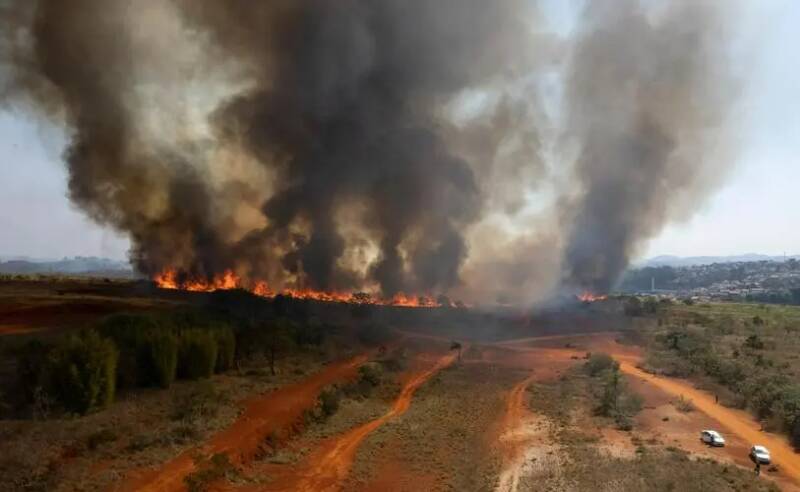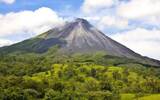Drought and fires intensify in Brazil! Coffee bean production cycle forced to be delayed
According to local media reports, fires have continued across Brazil since the end of August, further exacerbating the problems plagued by drought in the Brazilian coffee industry. As coffee plantations in Sao Paulo were engulfed by fire and coffee plants were destroyed, producers will have to replant new coffee trees, delaying coffee harvested in 2025 to 2027 and reducing coffee production in the next two years.

It is understood that these coffee farms are generally close to national protected areas or sugarcane fields, but as the fire is concentrated in these areas, coffee farms are affected. At present, the damage caused by the fire has little impact on this year's harvest, but it has seriously affected the new production season of 2025.
According to Conab, the National Commodity supply Company under the Brazilian Ministry of Agriculture, the first data on the impact of the fire on coffee plantations are expected to be released on the 19th of this month, all because many parts of Brazil are still affected by the fire, making it difficult to accurately estimate the area affected by the current coffee disaster. According to preliminary estimates, about 100 hectares of coffee plantations have been burned in several areas near the town of Franka (Franca) in S ã o Paulo alone.

According to the chairman of the Funda coffee ã o Pr ó-Caf é, as the fire has not been completely put out and destroyed the local soil, it will take some time to restore the soil if crops such as coffee are to be replanted, and new crops will not be replanted until January 2025 at the earliest, so coffee is not expected to be harvested until 2027.
In addition, due to the wide range and serious impact of the fire in Brazil, the smoke has also brought a lot of impact. it is reported that since the fire broke out at the end of August, the sky in most parts of Brazil has not seen a blue sky and has been covered with smoke. Air quality experts at the National Space Institute of Brazil said that due to the fierce fire, the smog covered nearly 5 million square kilometers, affecting at least 10 states, almost 60 per cent of Brazil's national territory.
And the fire continues, the local hot weather and the lack of cold air that can carry smoke, so that the smoke will not disappear in a short period of time. The smog has an equally serious impact on Brazil, with harmful substances in the smog having a serious impact on human health and poor visibility, affecting local airports and traffic. In addition, the smog aggravates Greenhouse Effect and has a negative impact on the growing environment of crops, so some coffee producing areas where there is no fire will be affected by the smog.
In addition, the problem of drought in Brazil remains serious. Earlier, Brazil's National Natural disaster Monitoring and early warning Center reported that Brazil is currently experiencing the worst and most extensive drought on record, covering the basic front line from the north to the southeast.
According to the records released, the Amazon rainforest has been suffering from drought since last year, with insufficient rainfall during the rainy season and another drought in June this year, and was warned by the Brazilian Geological Survey. The water level of the river in the Amazon basin is very likely to fall below historic lows. As the Amazon River is the most important river in Brazil, many coffee producing areas in Brazil have reported insufficient groundwater resources, resulting in poor coffee growing environment.
Moreover, the headland has seriously affected the export of Brazilian coffee and other agricultural products. Due to the decline in the water level of the Amazon river in the north, many agricultural products have been transferred to ports in southern Brazil, increasing pressure on the ports and aggravating port congestion in the south. As a result, the delay rate in several ports in southern Brazil has been maintained at 60-80%. Due to delays leading to a massive build-up of agricultural products and hot weather, about 1.2 million bags of coffee were reported in July, with a loss of about $300m.
At present, the temperature in Brazil remains hot, including Sao Paulo, Minas Gerais and other major coffee producing areas have issued a red warning of dry weather, affecting coffee production in the new season next year. In addition, the price of coffee will continue to rise as fires, air quality and port delays may lead to a decline in exports.
For more information about coffee producing areas, please scan the code directly and follow: coffee comments.
Long press the QR code to follow:
TRANSLATE with
XEnglishArabicHebrewPolishBulgarianHindiPortugueseCatalanHmong DawRomanianChinese SimplifiedHungarianRussianChinese TraditionalIndonesianSlovakCzechItalianSlovenianDanishJapaneseSpanishDutchKlingonSwedishEnglishKoreanThaiEstonianLatvianTurkishFinnishLithuanianUkrainianFrenchMalayUrduGermanMalteseVietnameseGreekNorwegianWelshHaitian CreolePersian
TRANSLATE with
COPY THE URL BELOW
BackEMBED THE SNIPPET BELOW IN YOUR SITE Bing Webmaster PortalBack
Important Notice :
前街咖啡 FrontStreet Coffee has moved to new addredd:
FrontStreet Coffee Address: 315,Donghua East Road,GuangZhou
Tel:020 38364473
- Prev

What are the famous coffee producing areas in Costa Rica and what are their characteristics
Between South America and North America, it is connected by the long and narrow China-America isthmus, which is rich in natural resources. The area is penetrated by the Cordillera Mountains. Therefore, the terrain of the area is mainly plateaus and mountains, with basins and valleys, many forests, and a long stretch of land extending on the Pacific side.
- Next

Why does the coffee you drink taste sour? Why is coffee sour? What is the cause of caffeic acid?
In the article "Why Most Coffee Now Is Sour", Qian Jie talked about why most coffee should be sour and why it should be sour. Then many friends said: I understand why coffee should be sour, but the question comes again. Why is coffee sour? The answer is simple, because coffee itself contains
Related
- What grade does Jamaica Blue Mountain No. 1 coffee belong to and how to drink it better? What is the highest grade of Blue Mountain coffee for coffee aristocrats?
- What are the flavor characteristics of the world-famous coffee Blue Mountain No. 1 Golden Mantelin? What are the characteristics of deep-roasted bitter coffee?
- Can I make coffee a second time in an Italian hand-brewed mocha pot? Why can't coffee be brewed several times like tea leaves?
- Hand-brewed coffee flows with a knife and a tornado. How to brew it? What is the proportion of grinding water and water temperature divided into?
- What is the difference between Indonesian Sumatra Mantinin coffee and gold Mantinin? How to distinguish between real and fake golden Mantelin coffee?
- What does bypass mean in coffee? Why can hand-brewed coffee and water make it better?
- Unexpected! Ruixing Telunsu lattes use a smoothie machine to foam milk?!
- % Arabia's first store in Henan opens into the village?! Netizen: Thought it was P's
- Does an authentic standard mocha coffee recipe use chocolate sauce or powder? Mocha Latte/Dirty Coffee/Salty Mocha Coffee Recipe Share!
- What is the difference between Vietnam egg coffee and Norway egg coffee? Hand-brewed single product coffee filter paper filter cloth filter flat solution!

